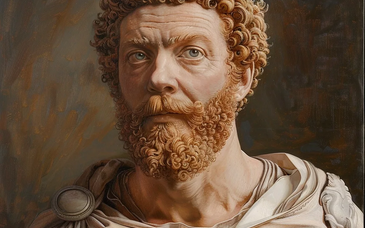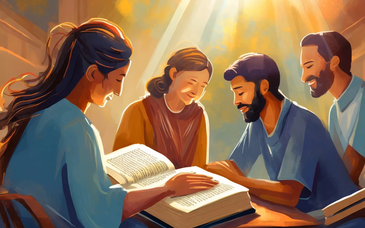As the heart of a vast empire that spanned continents, Ancient Rome was a bustling metropolis where the daily lives of its citizens pulsed with energy and activity. Join us as we step back in time to explore the intricacies of daily life in Rome, from the grandeur of the Forum to the humble dwellings of its inhabitants.
Morning Rituals: In the early hours, the streets of Rome came alive with a flurry of activity. Citizens would wake to the sounds of vendors hawking their wares, the scent of bread baking in communal ovens, and the bustling crowds heading to the Forum for business or to the baths for a refreshing start to the day.
The Forum - Heart of Civic Life: As the sun ascended, the Forum became the epicenter of civic life. Senators, merchants, and commoners gathered to discuss matters of governance, trade, and daily affairs. Temples dedicated to gods and goddesses adorned the landscape, each contributing to the spiritual and cultural tapestry of Roman life.
Work and Commerce: Commerce thrived in the markets and shops that lined the city streets. Artisans, traders, and laborers engaged in their respective professions, contributing to the economic vibrancy of Rome. The bustling atmosphere of the city's commercial centers mirrored the diversity and dynamism of its populace.
Afternoon Leisure: In the afternoons, Romans sought respite from the day's demands. Wealthier citizens might retreat to their villas in the surrounding countryside, while others enjoyed leisurely strolls in the city's parks or engaged in intellectual pursuits. The public baths provided not only hygienic amenities but also served as social hubs for relaxation and conversation.
Evening Entertainments: As the sun dipped below the horizon, the city's theaters, amphitheaters, and chariot races came to life. Romans reveled in the drama of theatrical performances, the adrenaline of gladiatorial contests, and the spectacle of chariot races at venues like the Circus Maximus.
Family and Social Life: Family played a central role in Roman society. Evenings often revolved around shared meals, where family members gathered to discuss the day's events. Socializing with friends and neighbors in communal spaces or at private dinners was a cherished aspect of Roman life, fostering a sense of community and camaraderie.
Nightfall and Slumber: As night fell, the city gradually quieted. The flickering glow of oil lamps illuminated the streets, creating an enchanting atmosphere. Romans retired to their homes, whether humble apartments or opulent villas, to rest and rejuvenate for the coming day.
A day in Ancient Rome was a tapestry woven with threads of commerce, civic duty, leisure, and social interactions. From the grand monuments of the Forum to the intimate moments within the walls of private homes, the rhythms of daily life in Rome reflect the complexity and richness of this extraordinary civilization. As we traverse the remnants of this once-mighty empire, the echoes of daily life remind us of the enduring legacy of Ancient Rome.






